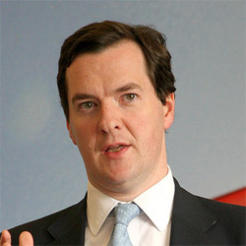The government has confirmed it will introduce the long-awaited VAT exemption for civil society organisations that wish to share back-office services.
Confirmation of the exemption is contained in the Chancellor’s Autumn Statement Document published today. It removes an additional VAT charge which can arise when organisations such as charities collaborate.
The exemption will apply to “services shared between VAT exempt bodies, including charities and universities”.
Charity Finance Directors’ Group and the NCVO were quick to welcome the news, which was largely the result of heavy lobbying by them and other sector bodies.
A requirement that charities who want to share services must set up a separate legal entity to do so was opposed by the sector but has been retained in the government proposal.
However Caron Bradshaw, CFDG’s CEO, said HMRC has sought to mitigate this issue by relaxing the control condition – "making it much more likely that charities with existing staff and resources will create an independent cost- sharing group which others can then join.".
Bradshaw said: “We are really pleased that government has heeded calls to implement this extremely important measure. Coming together to share services is such a basic, common-sense way of working efficiently to reduce your costs so it’s ridiculous that this is disincentivised by the tax system. There is such strength of feeling on this issue from charities too. It’s telling that around 40 charities contributed to the consultation response we produced jointly with NCVO – eliciting a far bigger response than many other pieces of work.”
She added that while the exemption “doesn’t give us all we asked for”, the announcement shows a real willingness on behalf of the government to accommodate the needs of the sector.
Sir Stuart Etherington, chief executive of NCVO, said the exemption removes a “sizeable stumbling block to effective collaborative working”.
“We know from our members that there is appetite within the sector to work together more effectively and efficiently, especially in these tough times, but the additional VAT charge acted as a major disincentive, at odds with the government’s drive to encourage more collaboration.”
Gifts of art and TUPE
In a separate move, the government also confirmed that people who donate gifts pre-eminent works of art or historical objects to the nation can receive a reduction in their income tax or capital gains tax liabilities, of up to £30m a year overall.
And, the Chancellor launched a call for evidence on the effectiveness of the TUPE regulations protecting employees’ rights and smoothing the process of business restructuring. It said it would formally consult on any changes proposed to the current regulations during 2012.
Corry: 'Very tough' times ahead
New Philanthropy Capital's chief executive Dan Corry said that while there were a number of welcome new measures in the Autumn Statement, "the main message is that the next few years are going to continue to be very tough with growth for 2012 now forecast at just 0.7 per cent."
He added: "Charities that have weathered the storm so far now know they will have to work very hard to cope as need increases and funding and contracts get harder to find. Running down reserves and making ‘easy’ cutbacks will no longer do. The worry is that it will be the very people that charities are there to help who will bear the brunt.”










